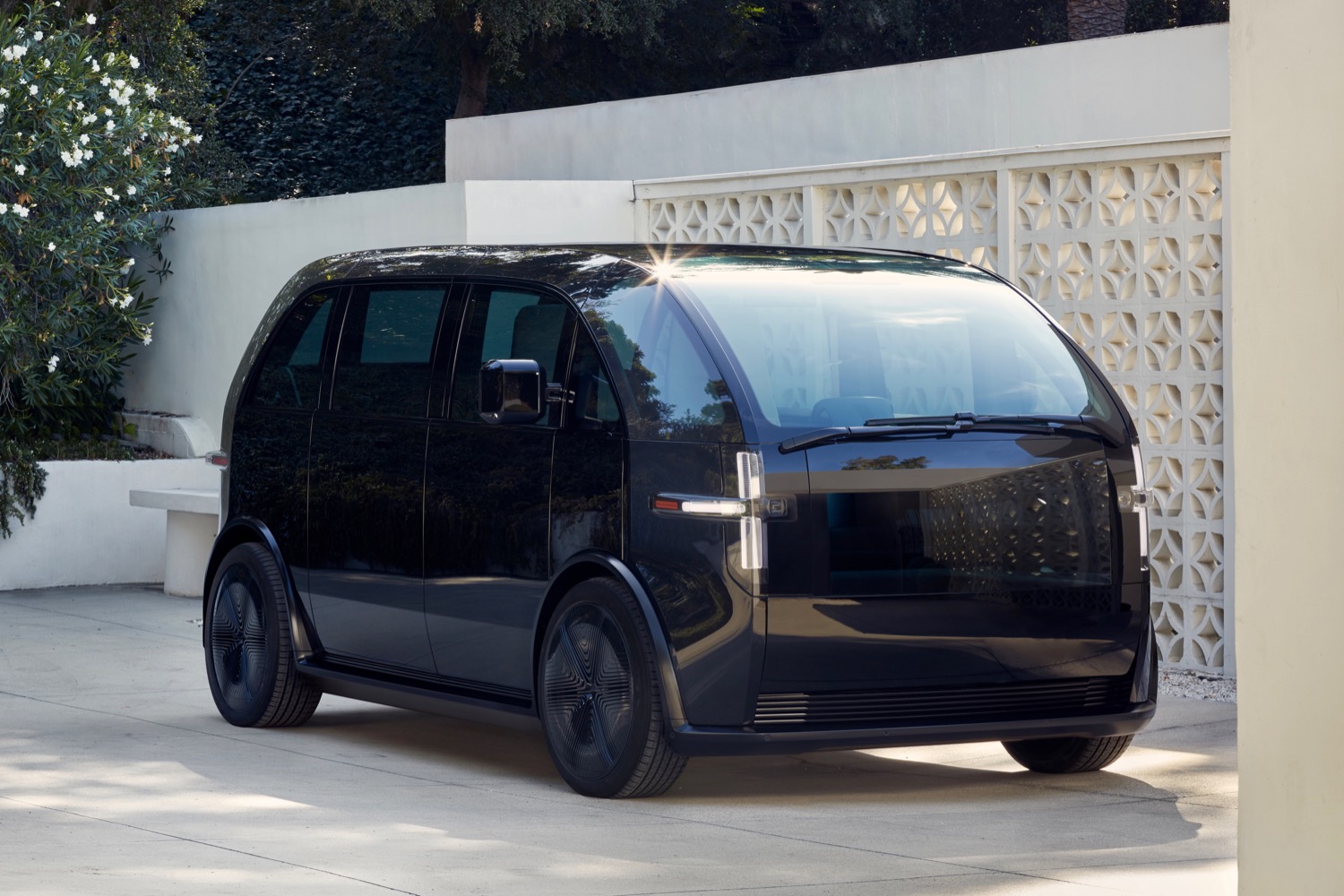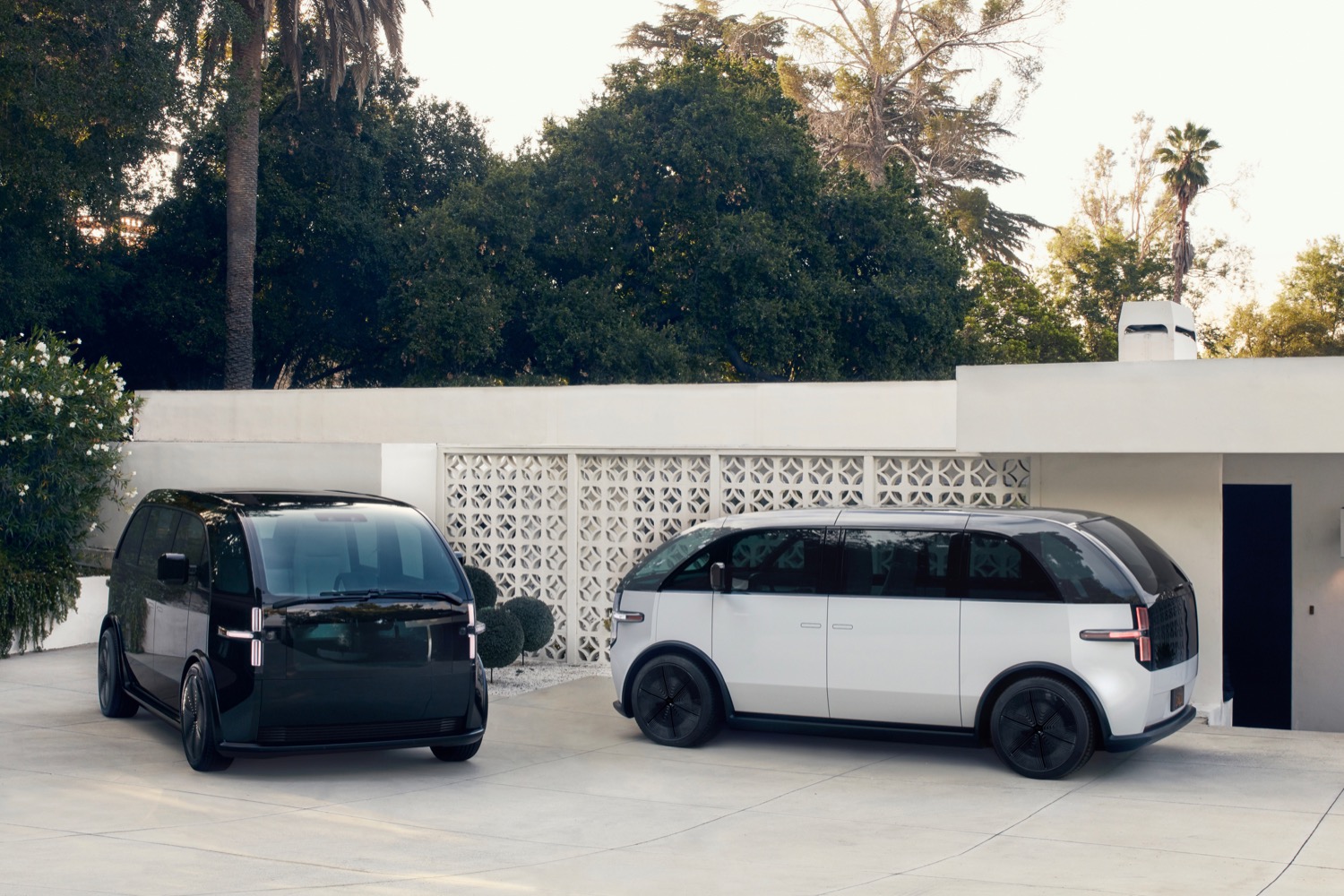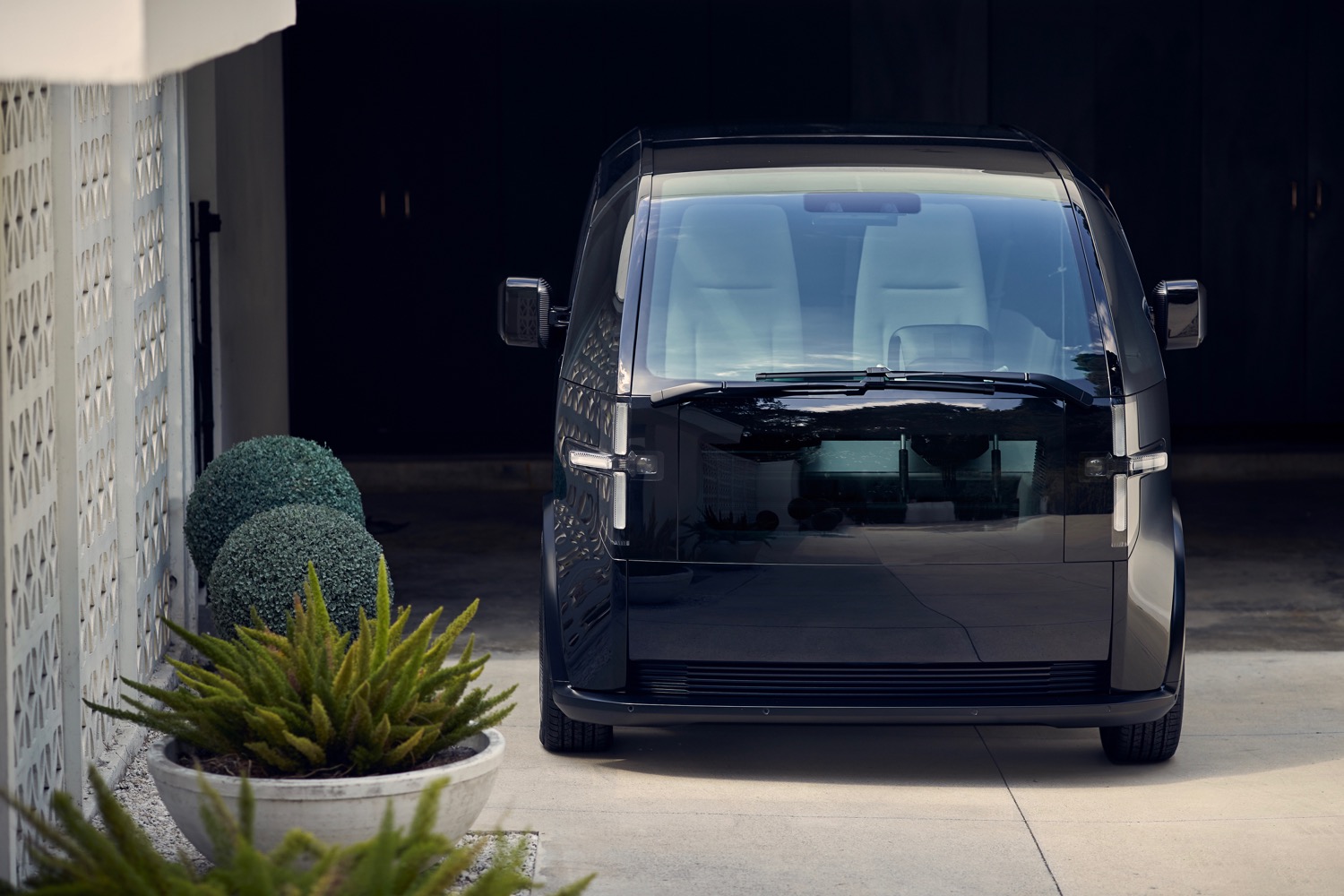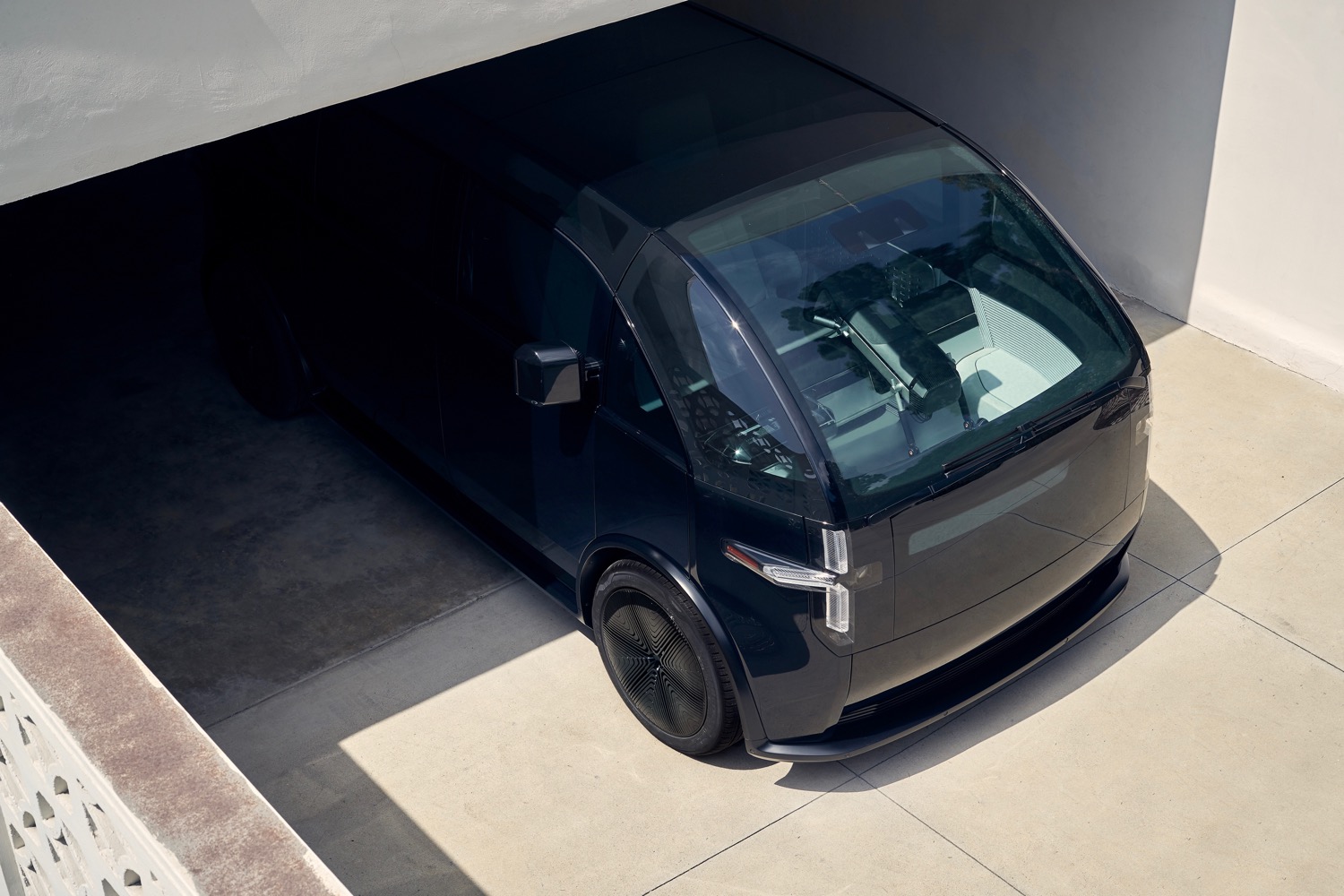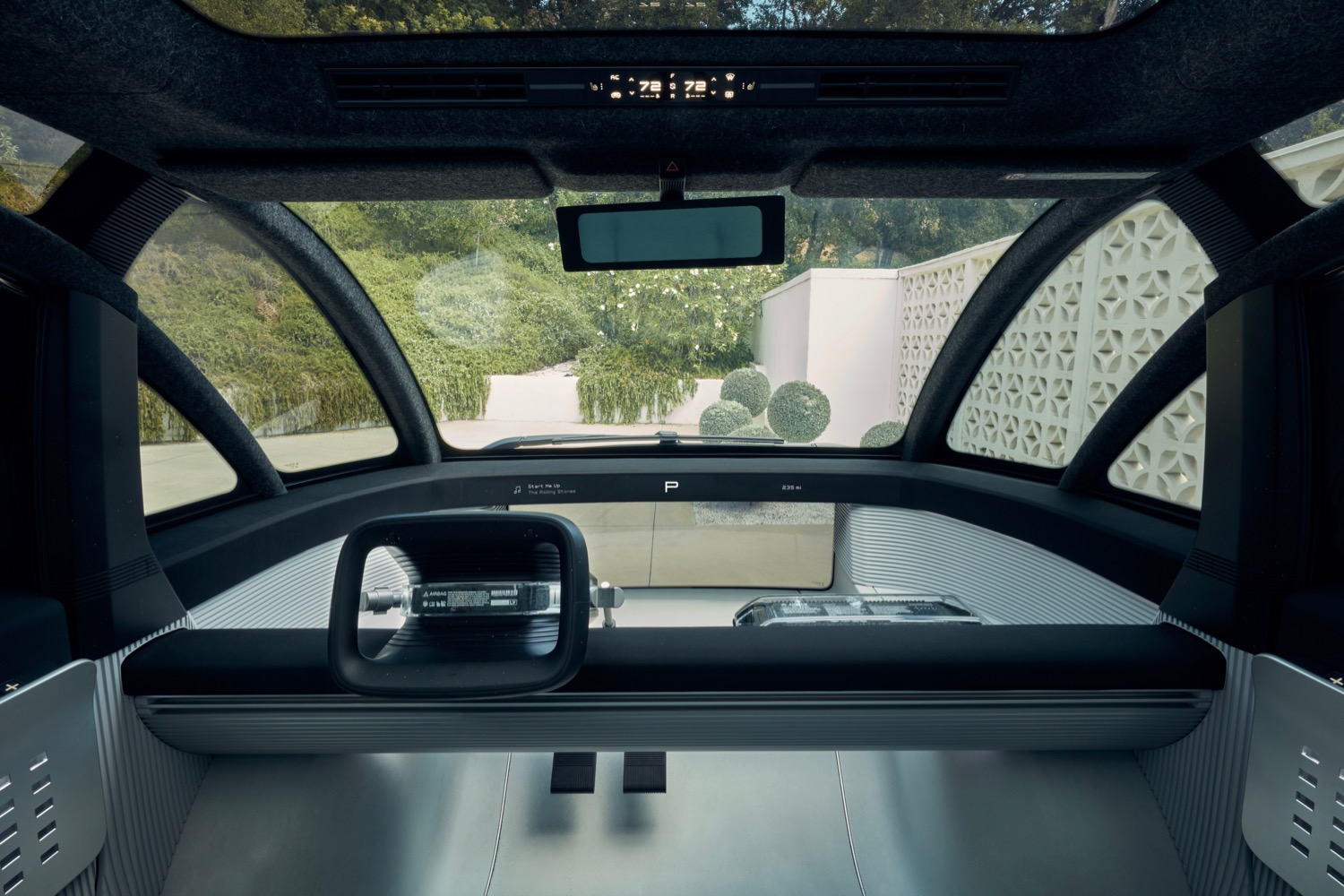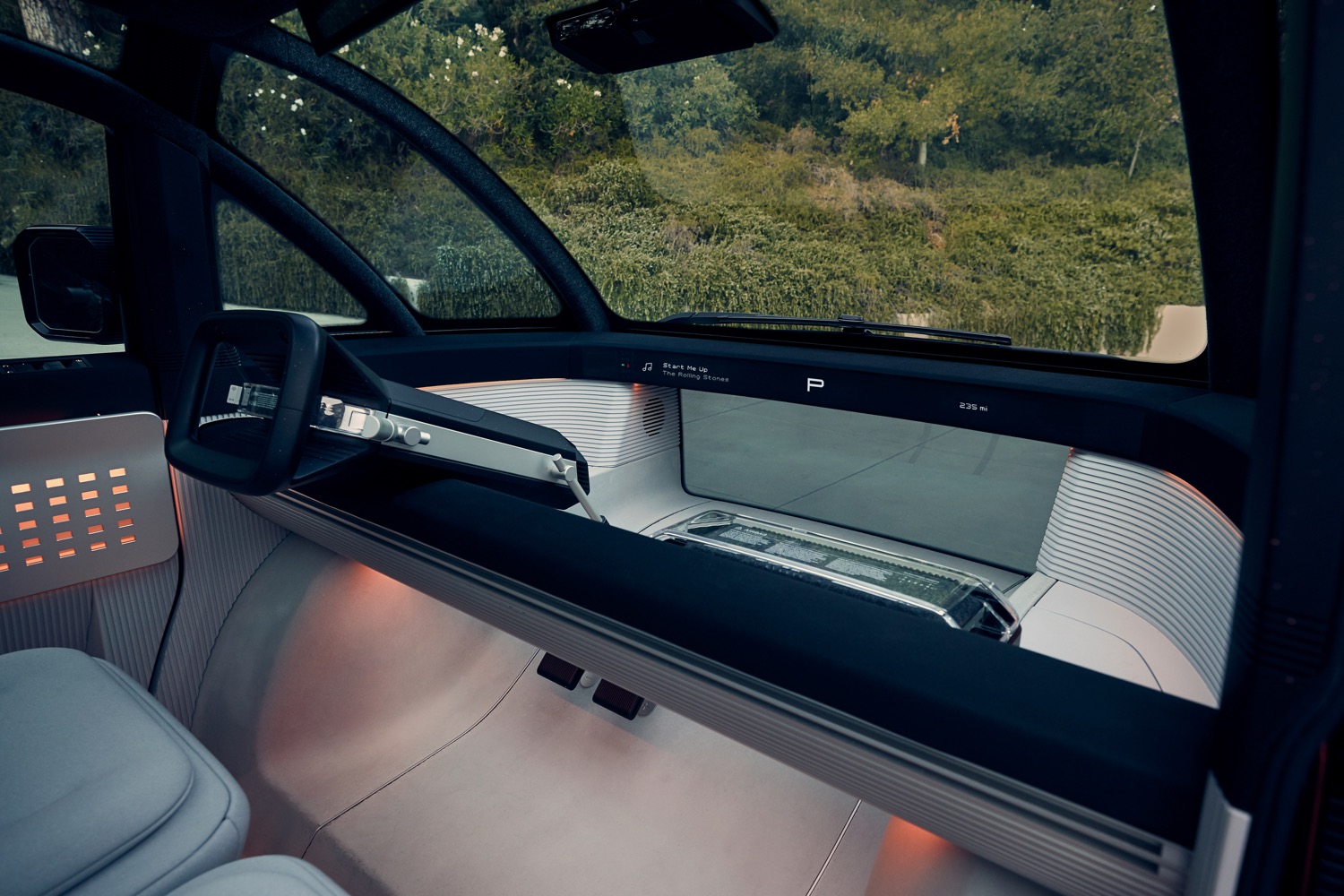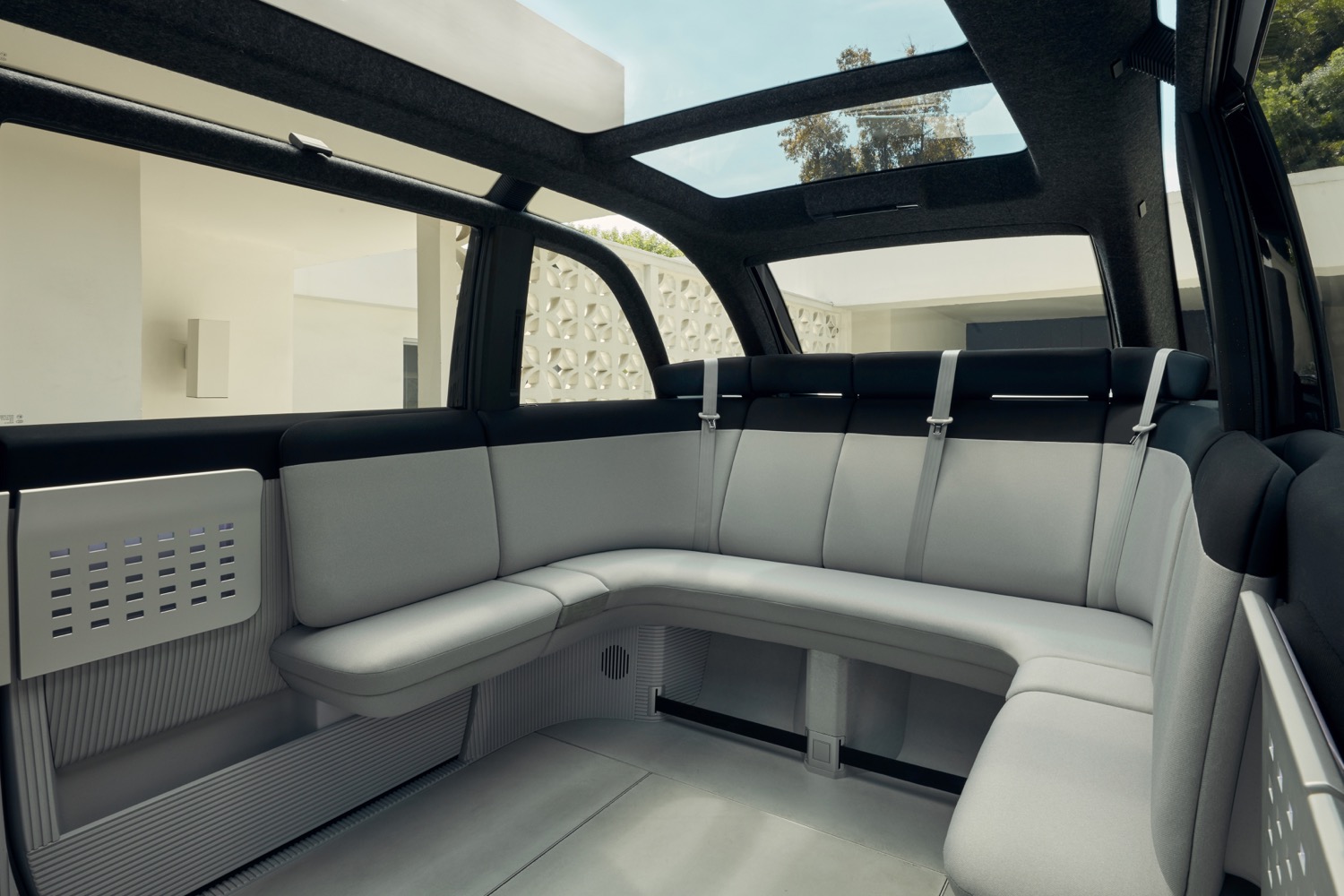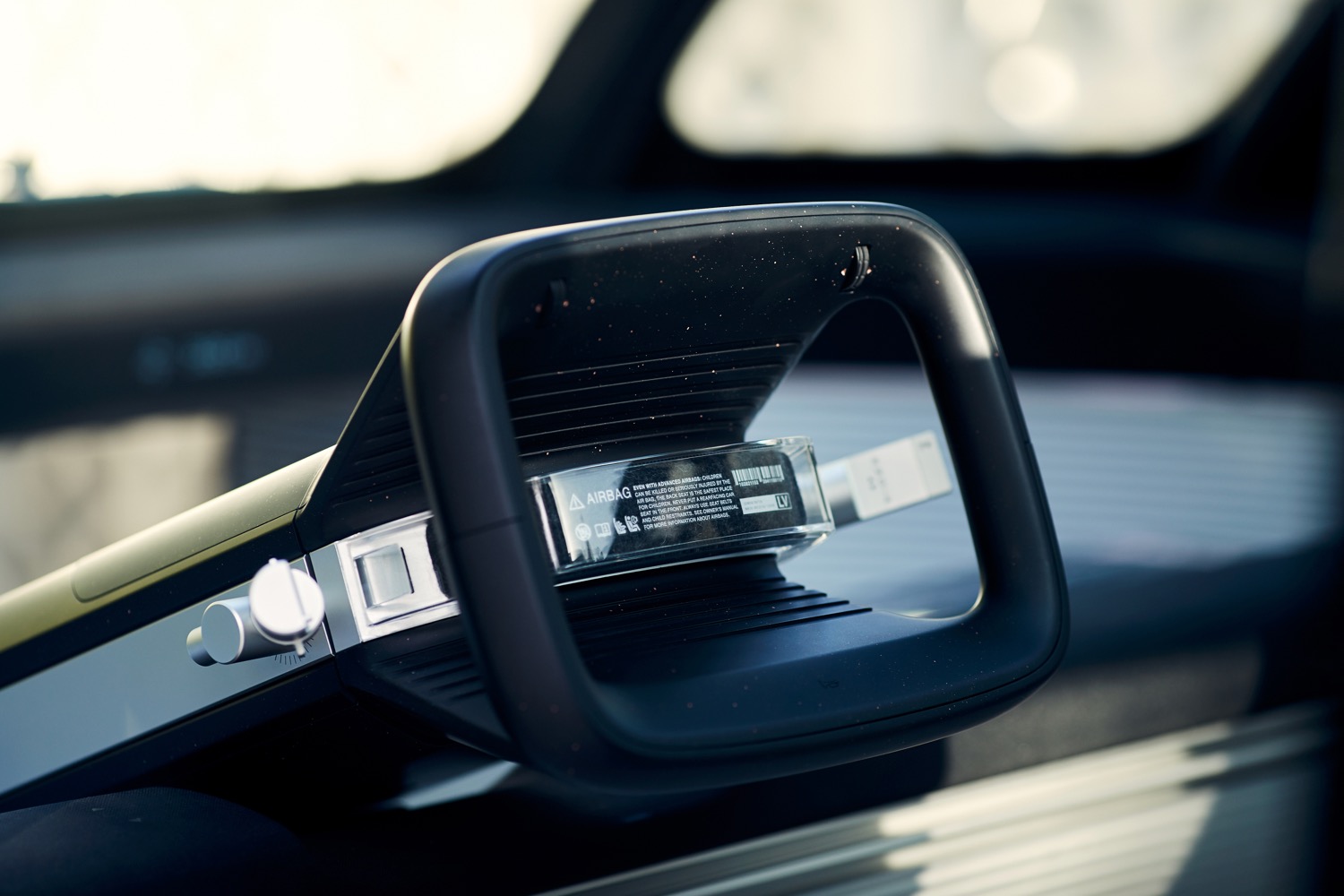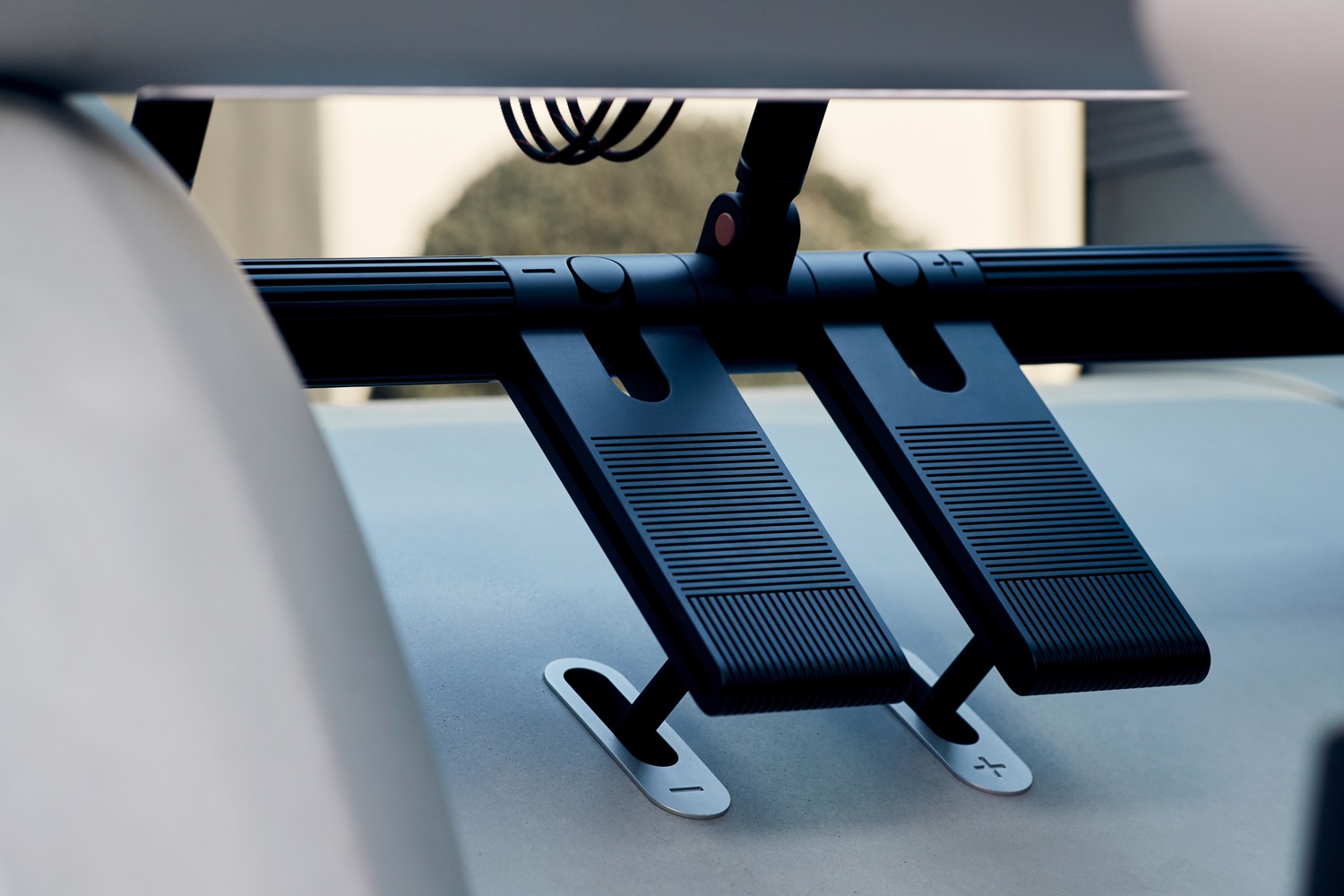Legions of electric car startups have sprung up with hopes of repeating the success of Tesla, but Canoo (formerly known as EVelozcity) is trying something different. Instead of building a luxury car with science-fiction performance figures and a high price tag, Canoo’s electric car — also called Canoo — looks like a futuristic minivan, and will be available only through a subscription service beginning in 2021.
“Today’s younger people, they don’t want to put a lot of money on the table and own the car,” Ulrich Kranz, who describes himself as being “in charge” at Canoo (the company doesn’t use traditional job titles), told Digital Trends in regard to the subscription-only business model. Customers will pay one monthly fee that includes the cost of the vehicle, as well as insurance and maintenance. Everything will be handled through an app, so customers won’t have to go to dealerships. Subscribers will also be able to return cars after one month, which may encourage more people to give electric cars a try, Kranz said.
“Some customers are not really sure if they want an EV,” Kranz noted, owing to concerns like range anxiety and the availability of charging stations. Getting to experience an electric car without having to commit to buying or leasing could win more converts, Kranz believes, giving Canoo an advantage over other startups, as well as established automakers, which are launching more electric cars of their own.
The Canoo electric car certainly doesn’t look like anything offered by other companies. The pod-like design gives the vehicle room for seven people within the footprint of a compact car, according to Canoo. The company describes the interior as an “urban loft on wheels,” with rear seats designed to feel like a sofa, and front seats inspired by mid-century modern chairs. Instead of a proprietary infotainment system, drivers simply plug their own smartphones or tablets into the dashboard.
The car is built on a “skateboard” chassis that contains all of the mechanical components and is similar in concept to the chassis Rivian developed for its electric trucks. This allows Canoo to easily fit different bodies to make new models, Kranz noted. It also helps maximize interior space, since almost everything is below floor level. Range is estimated at 250 miles, and DC fast charging will allow an 80 percent charge in 30 minutes, according to Canoo. At launch, the car will have a single electric motor sending 300 horsepower and 313 pound-feet of torque to the rear wheels. However, the skateboard chassis also allows for front-motor or dual-motor (front and rear) configurations, according to Canoo.
The Canoo electric car will launch with seven cameras, five radar units, and 12 ultrasonic sensors, enabling advanced driver-assist systems. It will also include a driver-facing camera to ensure the driver is paying attention. That will also eliminate the need for the annoying beeps and buzzes many current cars emit whether the driver is alert or not, Kranz noted. More sensors, such as lidar, can be added at a later date to enable autonomous driving, Kranz said.
Canoo was founded in 2017 by Kranz and Stefan Krause. They started Canoo after a stint at another startup — Faraday Future. Their departure led to a legal spat with Faraday. Kranz took over as boss of Canoo earlier this year after Krause stepped down for, according to the company, personal reasons. Kranz and Krause also have significant experience in the traditional auto industry, having worked at BMW before joining Faraday. Richard Kim, designer of the BMW i3 electric car and BMW i8 plug-in hybrid, is Canoo’s design boss.
While Canoo has worked to get its first car ready, many traditional automakers have started experimenting with their own subscription services. But those automakers have to deal with the cost of existing dealer networks, Kranz noted, not to mention the risk of angering those dealers by adopting a subscription model. The money saved by going subscription-only will allow Canoo to offer its vehicles at a lower monthly rate, as well as offset the cost of batteries, Kranz said.
Canoo’s subscription service will launch in 2021 in Los Angeles. Availability will then expand city by city. San Francisco will be next, followed by other West Coast cities, and ,eventually, an East Coast launch, Kranz said. Pricing will be revealed closer to the 2021 launch date.
